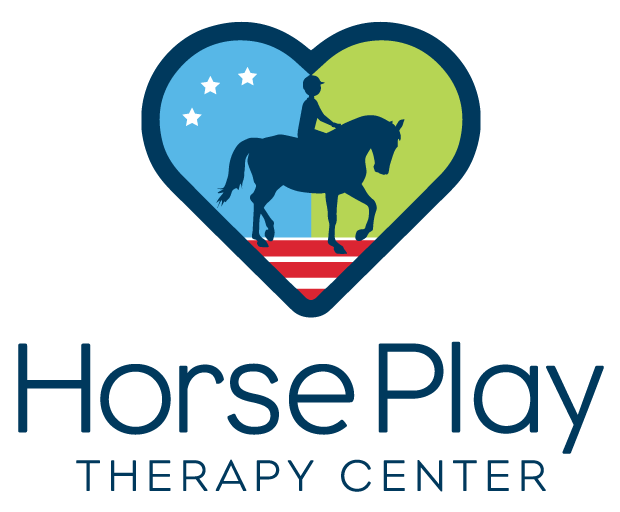A child who comes to Horseplay Therapy Center for occupational therapy works one on one with a therapist to improve fine motor skills and work on activities of daily living. Activities of daily living include socializing and playing appropriately with other children, dressing, self feeding, and more. Fine motor skills include stacking blocks, doing puzzles, holding a pencil or crayon, and using a spoon, or fork. We also help those with sensory processing issues to participate more actively in their home and school environments.
Occupational Therapists use different positioning on the horse to maximize balance, coordination, weight bearing, and timing. They combine therapy activities on the horse with fun therapeutic activities off of the horse to achieve the greatest outcomes.
At Horseplay Therapy Center we treat children with a variety of diagnoses including ASD (autism spectrum disorder), Cerebral Palsy, Down Syndrome, Traumatic Brain Injury, developmental delays, genetic disorders, and more.
Diagnoses that benefit our treatment include:
- Autism
- Sensory Integrative Dysfunction
- Attention Deficit Disorder
- Down Syndrome
- Cerebral Palsy
- Genetic Disorder
- Developmental Delay
- Traumatic Brain Injury
- Spinal Cord Injury
- Hypotonia
